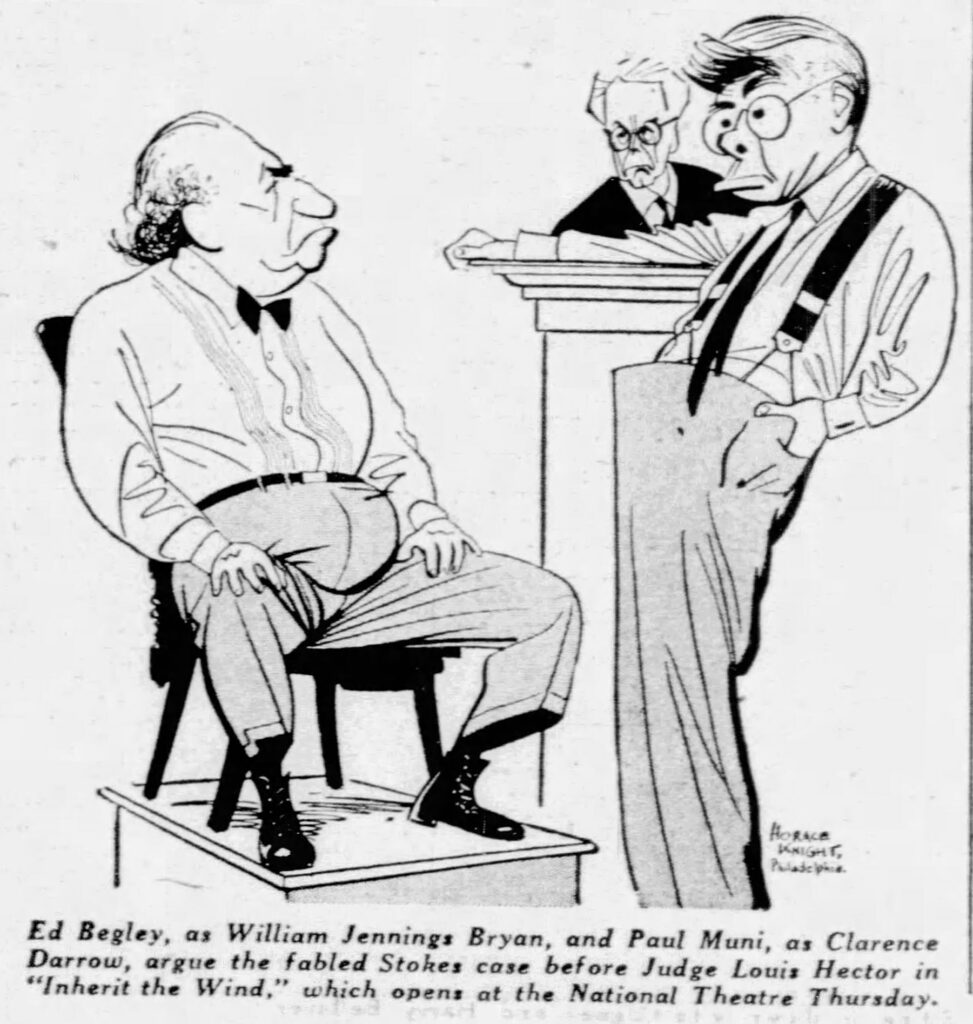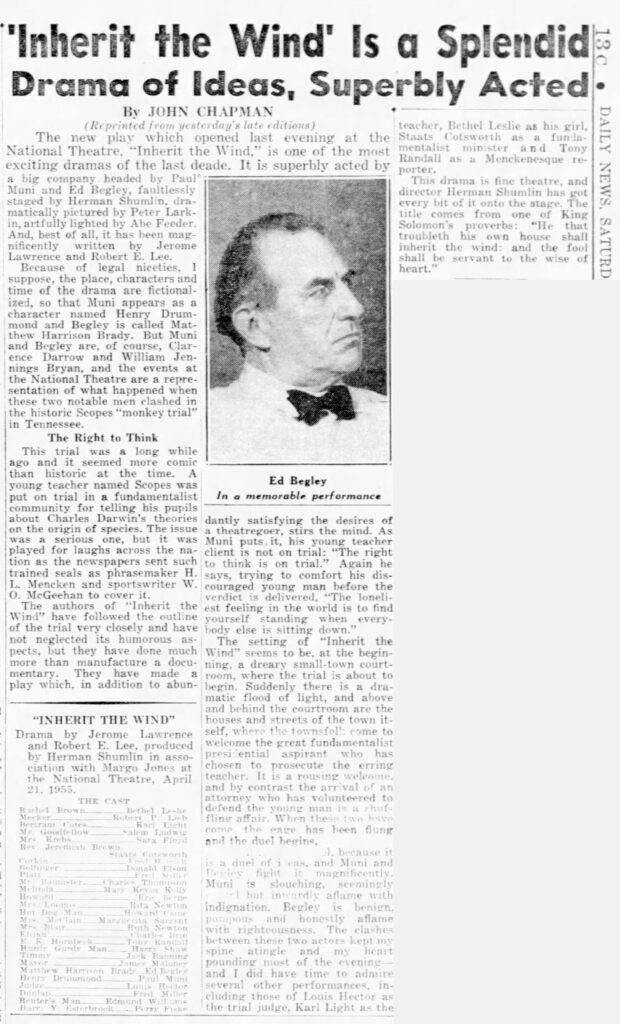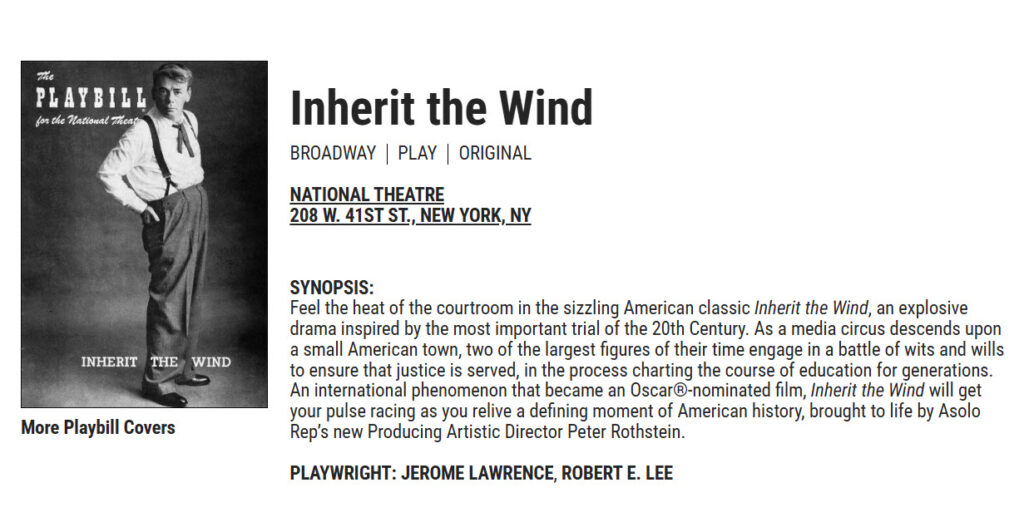“Inherit the Wind,” the Broadway play by Jerome Lawrence and Robert E. Lee, debuted on April 21, 1955, at the National Theatre in New York City7. This powerful courtroom drama brought the 1925 Scopes “Monkey” Trial back into the public consciousness, reigniting discussions about the teaching of evolution in schools.The play ran for 806 performances, closing on June 22, 19577. It featured a stellar cast, with Paul Muni in the lead role of Henry Drummond (based on Clarence Darrow) and Ed Begley as Matthew Harrison Brady (based on William Jennings Bryan)4. Both Muni and Begley won Tony Awards for their performances in 19564.While the Scopes Trial had not been entirely forgotten in the intervening years, with occasional mentions during anniversaries and when key participants passed away, “Inherit the Wind” brought the controversy to a new generation. The play’s fictionalized account of the trial served as a metaphor for intellectual freedom and a critique of McCarthyism.

Production and Impact
The play’s journey to Broadway was not without challenges. It was rejected by eight Broadway producers before Margo Jones, a theater director in Dallas, Texas, agreed to produce it1. The Dallas premiere on January 10, 1955, received rave reviews, leading to its Broadway acquisition by Herman Shumlin1.“Inherit the Wind” was directed by Herman Shumlin, with set design by Peter Larkin and costume design by Ruth Morley7. The production team’s efforts contributed to the play’s success in bringing the historical events to life on stage.
Historical Context and Controversy
While the play was widely perceived as an accurate portrayal of the Scopes Trial, it took significant liberties with historical facts3. The playwrights themselves stated that it was not meant to be a historical account, and there were numerous instances where events were substantially altered or invented1.The play’s portrayal of the trial served to publicize the Fundamentalist-Modernist controversy, pitting those who believed evolution could be reconciled with religion against those who prioritized a literal interpretation of the Bible2. This dramatization brought the debate over teaching evolution in schools back into the public eye, at a time when America was grappling with issues of intellectual freedom and scientific progress.
Legacy
“Inherit the Wind” has had a lasting impact on public perception of the Scopes Trial and the broader creation-evolution debate. Its continued staging and adaptations have provided ongoing opportunities for discussion and analysis of the story’s themes. The play has become a cultural touchstone, often referenced in discussions about science education and religious freedom in America.In conclusion, “Inherit the Wind” played a crucial role in reviving interest in the Scopes Trial and the evolution debate, bringing these issues to the forefront of public discourse for a new generation. Its dramatic retelling, while not entirely historically accurate, has ensured that the lessons and controversies of the 1925 trial continue to resonate with audiences decades later.

